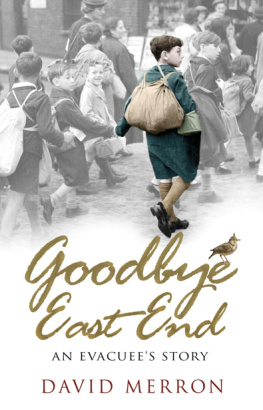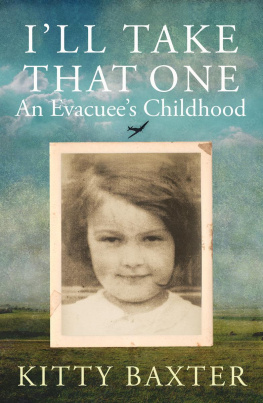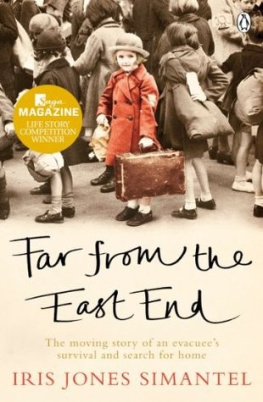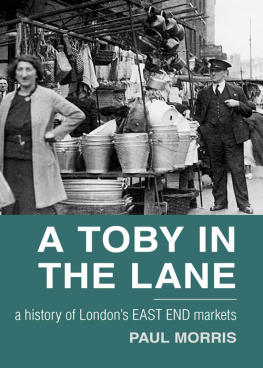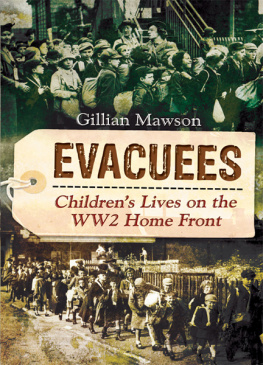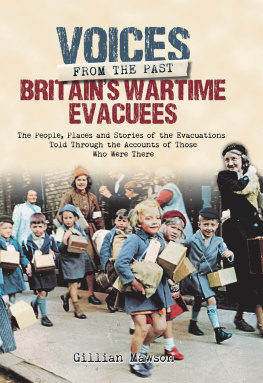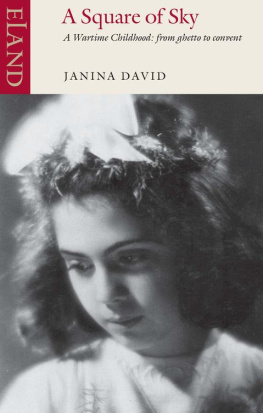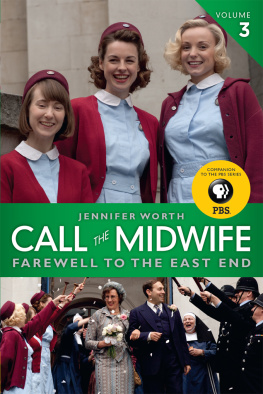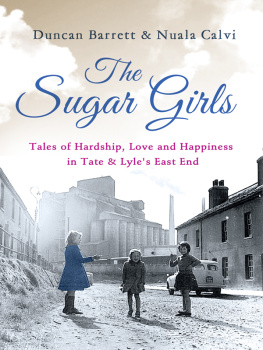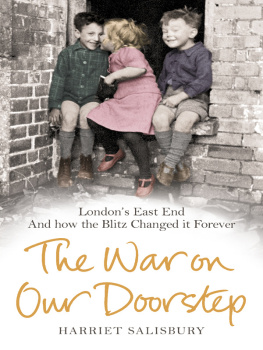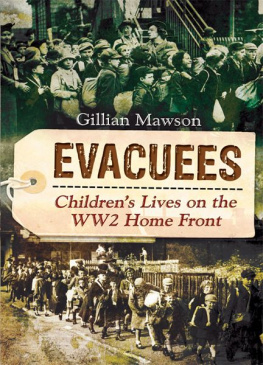About the Author
David Merron was born in Londons East End and evacuated as a wartime child to the countryside. After National Service, he spent fifteen years as a member of a kibbutz in Israel, during which time he began to write short stories and anecdotal accounts of kibbutz life. He continued to write on his return to England, including short stories and articles for magazines. Having participated in an MA writing programme and in several writers groups, he has written and self-published two novels and a short-story collection. He holds a masters degree from UCL and lives in North London. For more information visit www.davidmerron.com.
About the Book
As Hitlers bombs threatened London during the Second World War, eight-year-old David Merron was evacuated from his family and the close-knit Jewish community in the East End to the safety of the English countryside.
Placed into the care of strangers, this new life was sometimes unpredictable and lonely. But, with time, the great outdoors became an exciting adventure playground in which he flourished.
Set against a dramatic wartime backdrop, Goodbye East End is about the conflict between a boys unexpected love of the countryside and his guilt about not missing home as much as he might. It tells the moving story of a childhood experience that changed a young boys life for ever.
Chapter 1
September 1939
Evacuation. It was a new word. One I had had to learn quickly. At eight years old I vaguely understood that it meant being sent away somewhere with my school but without my family. What I could not anticipate, though, were the changes it would bring to me personally and, no doubt, to anyone else who went through the experience.
Before September 1939, my world was bounded by the four Tenter Streets that formed a tight, dense corner of Londons East End. They were probably named after a medieval tenter field, where weavers spread their washed cloth to dry and bleach. The area was a square of three-up, two-down and backyard-loo Victorian terraces, of smoke-blackened brick and grey slate roofs. The abrupt plunge into a vividly green early-autumn countryside and wide blue skies made an indelible impression that persists to this day and shaped much of my life.
My childhood until then was that of the East End Jewish community, of first- and second-generation immigrants who had fled the pogroms and persecutions of Tsarist Russia from the end of the nineteenth century until the First World War. It ranged from deeply traditional grandparents, who spoke only Yiddish, to those born in London and already almost in distinguishable from the general population. For me and my friends, our parents worked mainly in tailoring, cabinet-making and shopkeeping, or had stalls down Petticoat Lane the famous clothing market the younger ones branching out into offices and commerce, still understanding Yiddish yet speaking only English.
My dad, Jack Malina, was a ladies tailor, not very tall but well built and with a blue chin despite frequent shaving. Born in a shtetl a Russian village with a mostly Jewish population his worldview remained somewhere between Brest Litovsk and Whitechapel. He was only fourteen when his father died and had made his own way across Europe, a boat ticket from Bremen to London sewn into the lining of his coat, to join his older brother. He arrived a couple of years before the First World War began, and in 1917 was conscripted into the army. He spent almost two traumatic years in Flanders.
Dad was more familiar with Yiddish than English and that language permeated our everyday life. When I was first evacuated, I hesitated to ask my foster-parents for a bowl as I knew it only as a shissel.
Shortly after his release from the army he had married my mother quite a beauty from their wedding photographs. One of a large family, Mum had been born in the East End and had had a good schooling. She was an avid reader, getting through many of the latest novels, borrowed from the Whitechapel Library. As she bustled around the kitchen, she sang Well Gather Lilacs and other songs from thirties musicals. Now, like most working-class women in the East End, she had a lined face and hennaed her greying hair.
Jewish immigrants had brought over their religious tradition and practice and, of course, the synagogue. We spent Friday nights and Saturday mornings in prayer, and celebrated all the festivals and holy days. At the end of each service a stream of chattering worshippers flowed down Alie Street and St Marks Street and into the small houses for supper or lunch while, on the way, news of deaths, marriages and births in that order was relayed and commented upon. Everyone had an opinion.
Meanwhile, we youngsters would pull at our parents hands, just wanting to get home and eat. Wed waited all through the long service to get out to play or go home for a meal. Of course, Friday nights meant a smashing supper but Friday also meant no lights, no wireless, no writing or drawing, and the endless Sabbath ennui.
For me, there were only two bright spots in our religious practice. The first was the few minutes on Friday night in the synagogue when all the young children gathered on the rostrum under a huge prayer shawl to take a sip of the sweet red kosher wine from Palestine. As the silver goblet was passed round, we all tried to hold it longer against our lips to drink more, but the shamash the beadle was up to our tricks: he would snatch it away and move it on to the next. The second bright spot came during the annual Celebration of the Law, when the women, who occupied a balcony above the main hall, would throw down sugared almonds for the kids to scramble about and pick up. Sadly, neither made up for the tedious synagogue hours.
Unlike my older brother and sister, Arnold and Rita, I resented being shut away in a stuffy hall to mumble prayers I didnt understand, while my friends from less devout families played outside.
Mum was a great cook and our Friday-night meal would usually consist of her fried fish and chicken soup with matzo balls. Saturday lunch was often choulent a special stew. We werent allowed to cook on the Sabbath so on Friday afternoons my brother and I often took a large blue saucepan of choulent, tied at the top with a clean white tea-towel, to the bakers. Mr Cohen didnt bake on the Sabbath but his oven remained hot, so many families in the neighbourhood brought their choulent pot, paid a few pennies and left it to cook overnight.
On Saturday, after morning synagogue, Rita and I would go to collect it; girls and children were allowed to carry on the Sabbath. All the way home, my mouth watered at the smell. I couldnt wait to get my teeth into the meat and the chewy dumplings. One of the first things that struck me when I arrived at my country billet was the unfamiliar smells coming from the kitchen especially that of bacon frying.
Every so often after Friday-night synagogue, our whole family would have supper at my grandparents house. Grandma, whom we called Booba, and Granddad, or Ziyder, were Mums aged parents. We sat silently around the laden white tablecloth, Booba covering her head with a shawl, then circling her hands over the candles as she recited the blessing. Ziyder would break the soft white khollah bread and distribute a piece to each of us. I was fond of my grandfather with his tiny white goatee beard. He and Booba had come over from Poland in the 1880s and had had a small shop in Middlesex Street, until they retired. The old man was also a cobbler and sometimes I would watch him repairing shoes on his last, which he held tight between his skinny knees.
Dads tailoring trade was notorious for stopping and starting, according to the seasons fashions. Whenever neighbours or uncles came round, the talk, in a mixture of English and Yiddish, was often about lay-offs or, conversely, the

